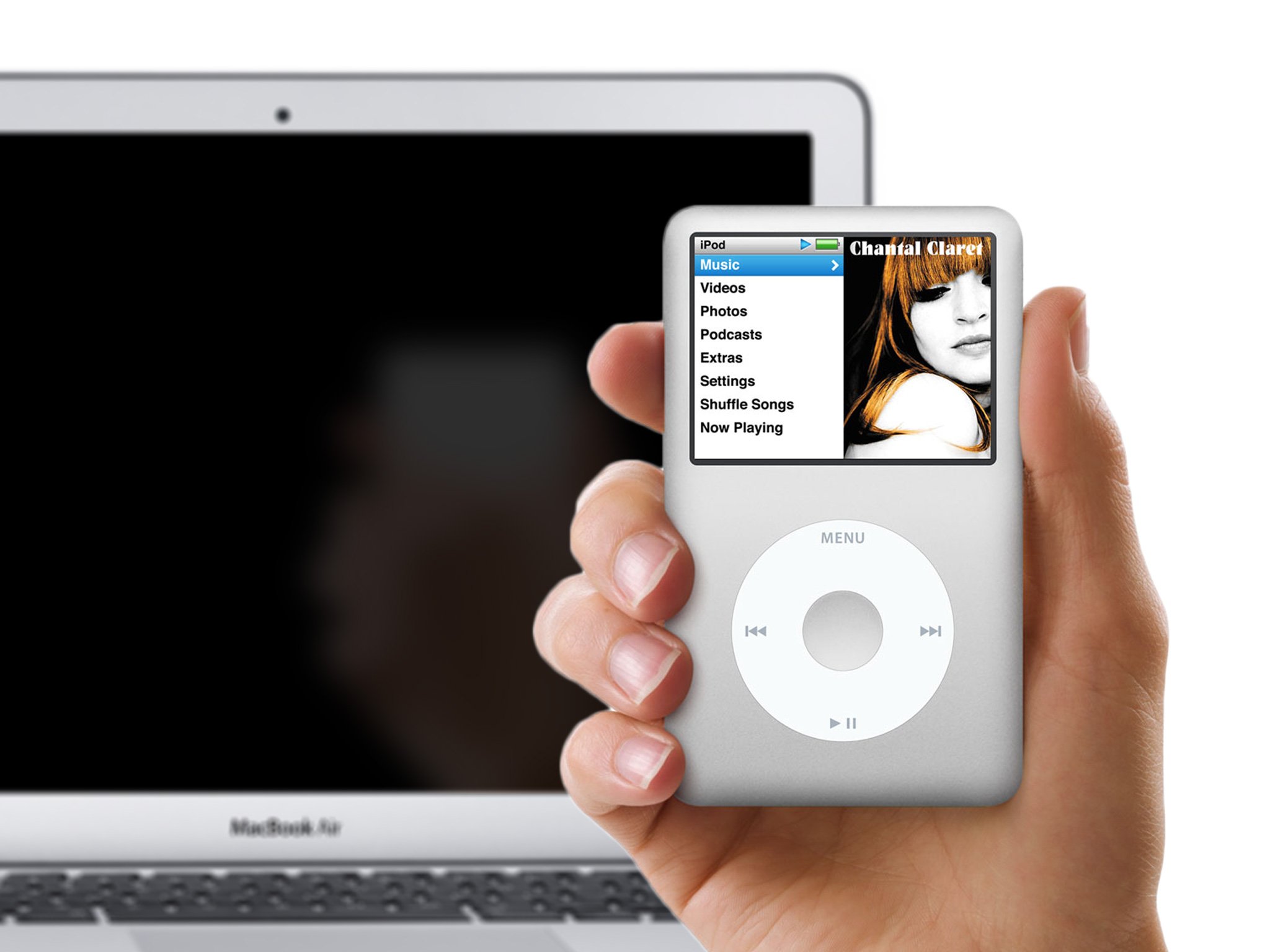iPod classic, requiescat in pace

Yesterday Apple quietly put to rest the device that singularly got the company moving in the direction it is today: the iPod classic. It's not hyperbole to suggest that the iPod helped turn Apple into the business it is today: The most successful consumer electronics company on the planet.
Apple introduced the original iPod in 2001. It had been four years since the company grabbed headlines and rescued itself from the brink by introducing the iMac. What's more, Apple was pivoting to become a much more directly consumer-focused company; earlier that year, it had begun opening its own retail stores. The iPod gave Apple customers another reason to check out the stores.
You could store 5 GB of music on that first iPod — 1,000 songs in your pocket, as Apple marketed it. The iPod was clad in white plastic and equipped with a black and white display and a mechanical click wheel. It connected to the Mac (Mac-only, at first) using a FireWire cable, and interfaced with Apple's iTunes app, which Apple had only released at the beginning of 2001. Digital music was still a novelty. It'd still be two more years before the iTunes Store would be available — for now, people were loading iTunes with music they'd already purchased on CD.
Mac users responded enthusiastically to the iPod, and Apple followed up with a PC-compatible version in 2002. Adoption of that model was hampered by its continued reliance on FireWire, a peripheral interface that was gaining popularity on the Mac but never quite got off the ground on the PC, except for some speciality systems like Sony Vaio computers.
2003 was a big year for Apple and the iPod. Apple revised the design of the iPod to incorporate the 30-pin dock connector — a standard on its consumer products for the next nine years, until the introduction of the iPhone 5, and one that made the iPod squarely platform-agnostic in terms of hardware connectivity.
What's more, the company introduced the iTunes Music Store, making it painfully easy to pay for and download music. Apple also introduced a Windows-compatible version of iTunes in 2003, making it easier than ever for people to buy and use iPods regardless of what computer platform they had (Apple had been selling the iPod for PC bundled with a third-party software app called Musicmatch).
Many more successes followed. By its fourth generation the iPod was squarely recognizable as the same one that you could buy from Apple up until yesterday. A color screen would eventually be added, and the original iPod would be rebranded as the "classic" beginning in 2007. The device has gone unchanged since 2009, when it was updated with a 160 GB hard drive, making it the single largest music-carrying device in Apple's iPod arsenal.
iMore offers spot-on advice and guidance from our team of experts, with decades of Apple device experience to lean on. Learn more with iMore!
The success of the original iPod spawned the enormously successful iPod mini, the even more successful iPod nano, and even the iPod shuffle, all of which implemented the same familiar circular click wheel interface to make it easier to discover and listen to your music everywhere.
Of course, times and tastes have changed. The world changed irrevocably in 2007 when Apple introduced the iPhone, and later, the iPod touch. The iPod nano would eventually adopt an iOS-like touch screen interface, too. So the iPod classic was left to lumber along, the only one of its kind still in the wild.
And so, quietly, without fanfare or ado, Apple changed the iPod classic's status from extant to extinct. What's a shame about it is that there isn't a flash-based device in Apple's arsenal with the equivalent storage capacity of the iPod classic; 128 GB is as big as the new iPhone 6 gets, twice the capacity of the largest iPod touch. Hopefully we'll see a new iPod touch soon, but I don't have high hopes that it'll have 256 GB or anything. Apple's banking too much on seeing customers transition to technologies like iCloud and iTunes Match to bother with making iOS devices with tons of internal capacity.
There are still iPod classics available in the retail channel; the store I work in still has a couple for sale, and I see them available on web sites too. This isn't the first time I've lamented the end of the iPod classic, but Apple's removal of the device from its web site and web store is an unmistakable indication that the device has been put out to pasture once and for all.
Are you sad like me that the iPod classic has gone away? Or was 13 years a long enough run for one device? Let me know your thoughts.

